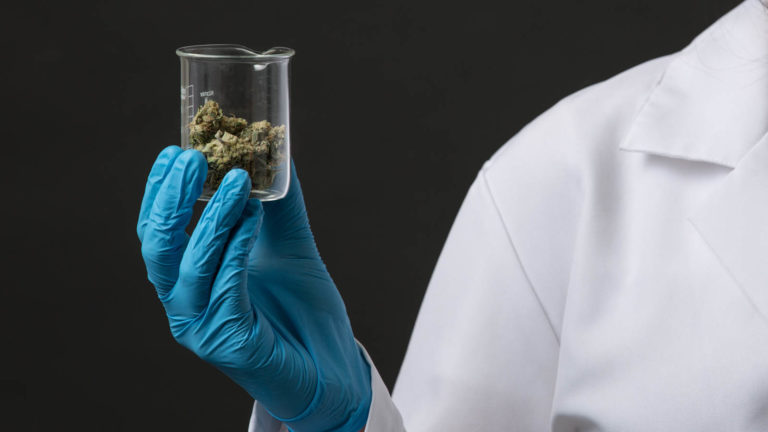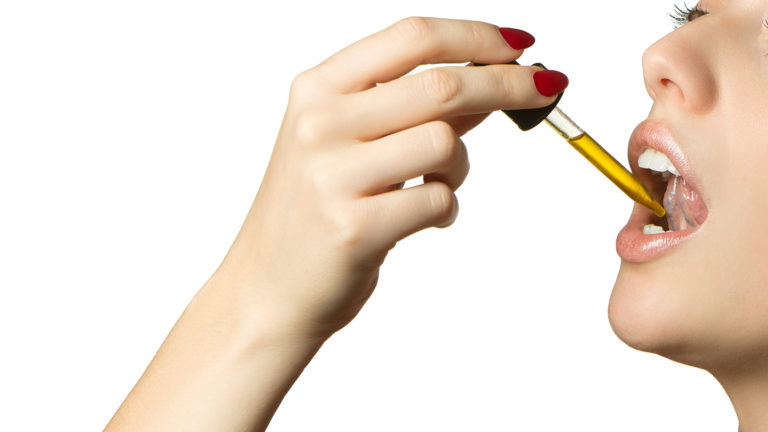A 2017 study published in the “Journal of Epilepsy Research” found that control groups of Dravet and Lennox-Gastaut syndrome patients showed a decrease in epileptic seizures when compared with placebo groups. It's one of several studies that have shown a potential link between cannabidiol (CBD) and seizure control among certain epilepsy patients.
This growing field of research on the anti-epileptic effects of CBD has led many who suffer from seizures, or care for those who do, to ask how CBD oil might help with their condition.
Research overview
Both CBD isolate and high-CBD whole-plant extracts, most commonly referred to as CBD oil, now have a clinical history of showing potential for reducing seizures.
Animal models showing reduced seizure activity with CBD
A 2017 study published in the “Proceedings of the National Academy of Sciences” tested the ability of isolated CBD to reduce seizures in Dravet syndrome models in mice. Having administered 100 milligrams of CBD per kilogram of body weight to the mouse models over the course of several tests, the study concluded that CBD was effective in reducing Dravet syndrome seizure symptoms.
FDA-approved CBD isolate epidiolex and seizure reduction
A 2018 study published in the “New England Journal of Medicine” focused on Lennox-Gastaut syndrome, a severe type of epilepsy that first appears in childhood, and patients whose seizures had been unresponsive to their prescribed anti-epileptic medications. When treated with 20 milligrams per kilogram of body weight with Epidiolex, a CBD isolate medication approved by the U.S. Food and Drug Administration (FDA), nearly 42% of patients experienced a reduction in seizures, while 10 milligrams of Epidiolex per kilogram of body weight lessened seizures in 37% of patients. Milligram-per-kilogram (mg/kg) doses are based on body weight, making it more precise for dosing infants and small children most often affected by the severe forms of epilepsy Epidiolex treats. Most clinical trials of CBD for seizures have been done on pediatric patients, although findings are similar among adults.
 Photo by: Gina Coleman/Weedmaps
Photo by: Gina Coleman/WeedmapsImage lightbox

Whole-plant CBD oil
Full spectrum or whole-plant CBD oil is a mix of CBD, minor cannabinoids, terpenes, and trace amounts of THC. Researchers have found that whole-plant CBD oil may treat seizures more effectively than CBD as an isolated compound.
A 2018 study published in the journal “Brain Development” found an average 11 mg/kg dosage of whole-plant CBD oil to be effective in treating children and adolescents with drug-resistant epilepsy. About half of the patients in the study reported adverse reactions, while more than half saw a reduction in the frequency of their seizures. In addition, researchers observed that beginning the CBD oil regimen at a younger age generally resulted in better outcomes for the patients.
Patient perspectives
Armand Sahyoun is a 24-year-old epilepsy patient profiled by Weedmaps News in a 2019 article titled, “How Can Whole-Plant CBD Oil and FDA-Approved Epidiolex Reduce Seizures?” According to his mother, Beth, he started at 4 milliliters of CBD oil and moved up to 10 milliliters per day. While taking his CBD oil orally, Sahyoun reduced his prescription medications and experienced positive changes in seizure frequency and quality of life, according to his mother.
 Photo by: Gina Coleman/Weedmaps
Photo by: Gina Coleman/WeedmapsImage lightbox

Dr. Bonni Goldstein, medical director of Canna-Centers in Lawndale, California, and a medical adviser for Weedmaps, treats Sahyoun and noted in the article that many of her epilepsy patients who have reaped the benefits of CBD oil didn't respond well to other types of drugs.
RayAnn Moseley is a 16-year-old whose recovery from intractable epilepsy using CBD is chronicled in the book “A Ray of Hope,” written by her mother, a registered nurse. Mosely was close to death in 2012 before she began taking CBD oil from the strain Charlotte's Web. Over the next several years, her seizures ceased completely and she was able to stop taking most of the prescription medication she had been on.
Side effects from childhood epilepsy treatments often significantly diminish quality of life for the young patients. Moseley recovered enough to become a symbol of CBD's possibilities for children with epilepsy and help push for the passage of Florida's medical marijuana bill in 2014.
Other things to note
Epilepsy is not the only seizure-causing condition that CBD oil may be able to treat. One Texas family participated in a clinical trial in 2017 to treat their 7-year-old daughter's tuberous sclerosis that triggered daily seizures and might eventually lead to epilepsy. At Cook Children's Medical Center in Fort Worth, Dr. M. Scott Perry led the trial and worked with several families calling on his expertise as a pediatric epileptologist and director of neurology. In a video interview with the USA Today Network, Perry noted that the CBD he was testing qualified as a true pharmaceutical drug.
As of May 2019, Perry was still awaiting the results of the completed trials, but shared with “Neurology Live,” a website for healthcare professionals, “The study tells us that the drug is effective as a treatment for drop seizures and convulsive seizures — that's been shown over and over again. The open-label trial tells you that not only is it effective, but its effectiveness is maintained. So, it's not something that we lose efficacy with over a few months, it's maintained here for over a year.”
Physician supervision for any seizure-related condition is crucial as cannabis may interfere with certain prescription drugs. When ingested, CBD inhibits certain drug-metabolizing enzymes in the liver, which can cause blood levels of other medications to skyrocket. For adults, vaporized CBD that bypasses the liver and goes directly from the lungs to the brain and bloodstream could be a safer option.
However the CBD oil is consumed, the cannabinoid seems to reduce inflammation of the brain, which is key for epilepsy patients, as brain inflammation is believed to worsen seizures. CBD oil may also help to restore balance to the body's endocannabinoid system (ECS), possibly another way to ward off seizures.
Bottom line
Treatment-resistant epilepsy and seizure disorders can have a debilitating impact on families and patient wellbeing. Promising research seems to indicate the effectiveness of CBD in reducing seizures but more rigorous clinical trials are needed to determine dosage and the right mix of cannabinoids.
Major contributions from Dr. Adie Rae.

